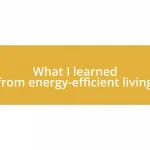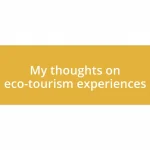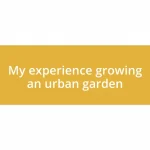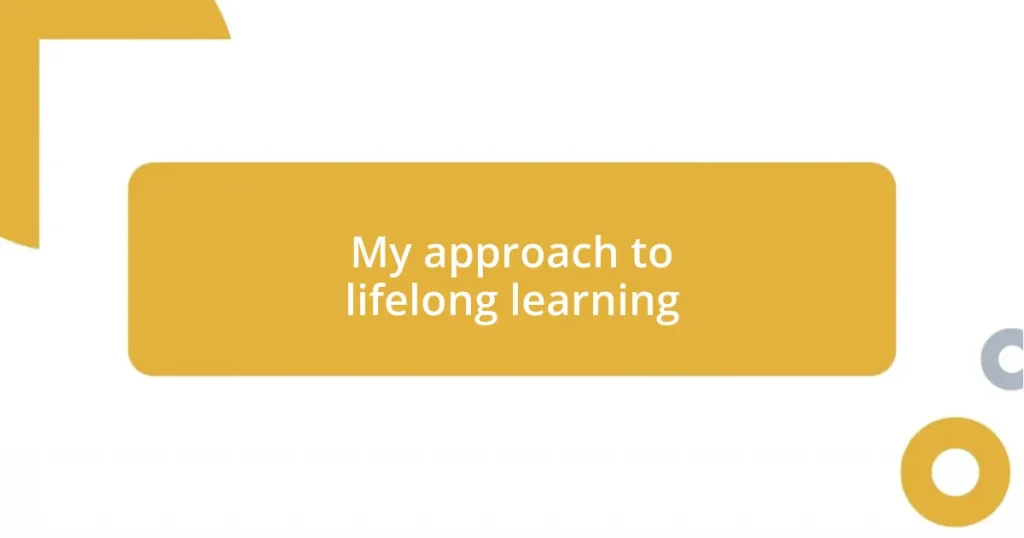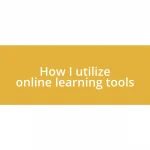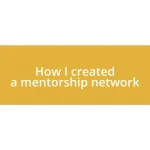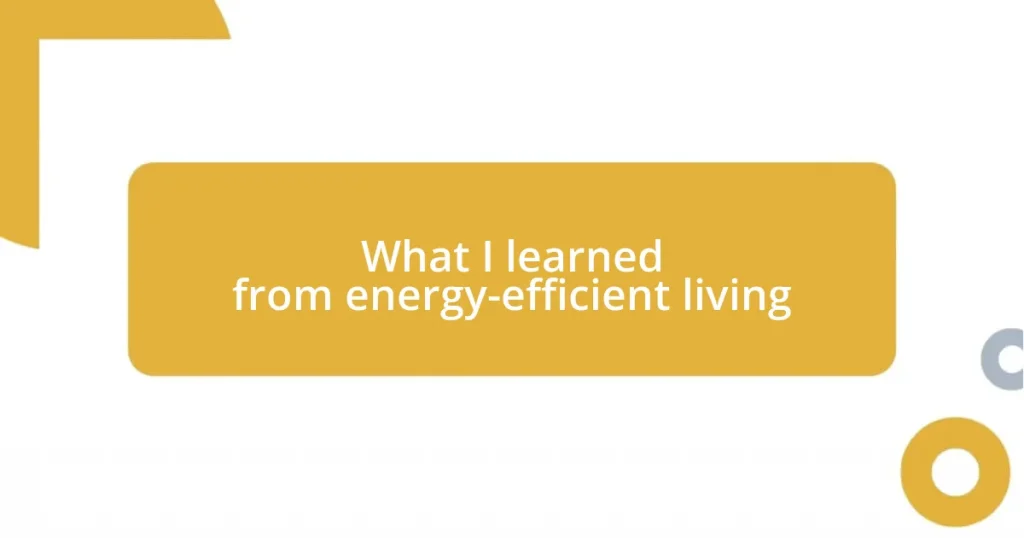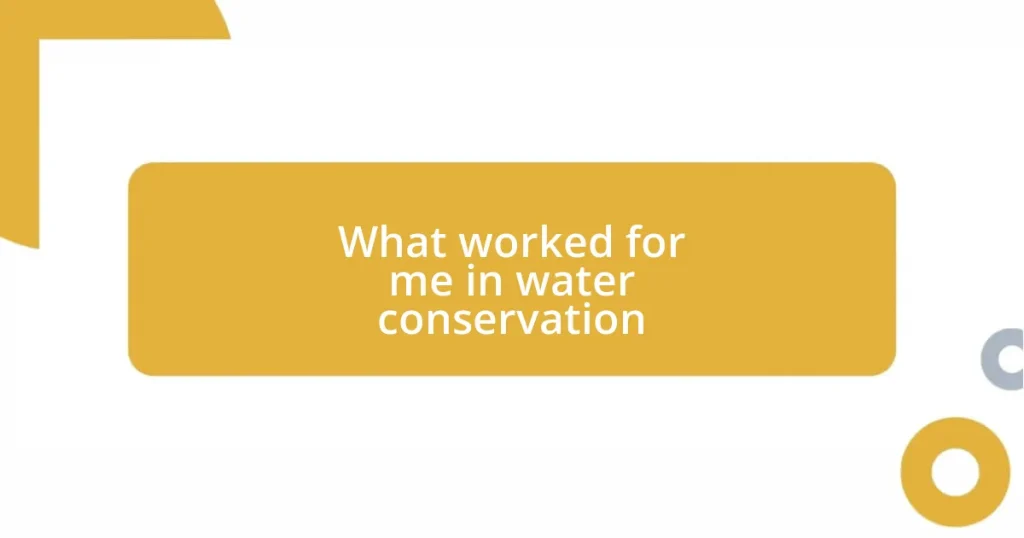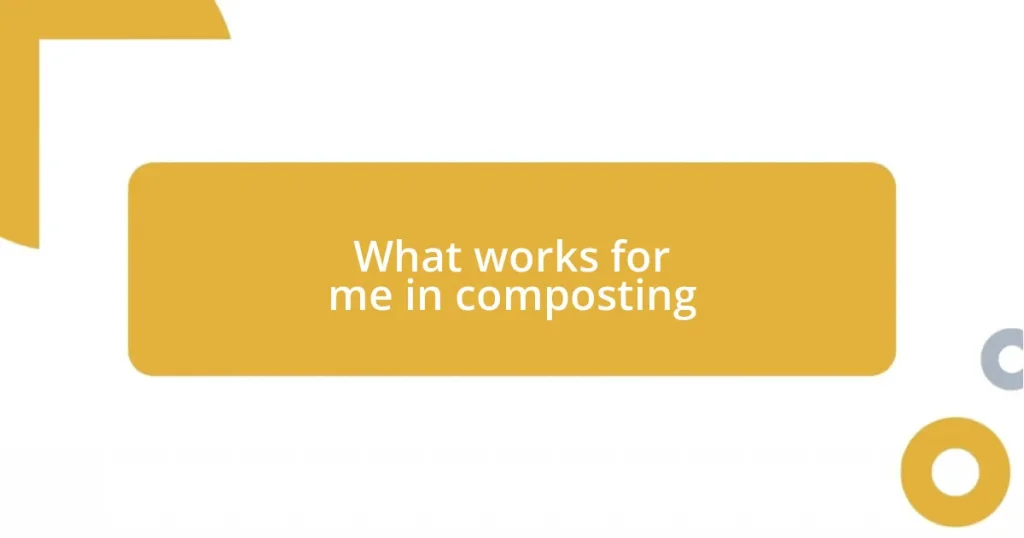Key takeaways:
- Lifelong learning enhances personal growth and confidence, allowing individuals to adapt and thrive amid challenges.
- Identifying personal learning goals through reflection, prioritization, and feedback is crucial for a structured lifelong learning journey.
- Utilizing diverse resources and adaptive strategies can significantly enrich learning experiences and maintain motivation.
- Consistent evaluation and adaptation of learning practices empower continuous growth and deeper engagement in the learning process.

Understanding lifelong learning importance
Lifelong learning is crucial not just for personal growth but also for adapting to the rapid changes in our world. I remember feeling the weight of uncertainty when I switched careers a few years back. Without that commitment to learning new skills, I wouldn’t have felt empowered to take that leap.
Consider this: how often do we encounter situations that push us outside our comfort zones? I still recall a moment at a networking event where I struggled to connect with others due to my lack of knowledge about emerging technologies. That experience highlighted how vital lifelong learning is—not only to keep up but to genuinely engage and thrive in various aspects of life.
Moreover, the emotional benefits of lifelong learning can be profound. Each course I pursued, every book I read, added a layer of confidence and excitement to my life. It’s exhilarating to realize that regardless of age, there’s always a new adventure waiting to unfold; don’t you think that learning has an incredible way of keeping our minds and hearts alive?

Identifying personal learning goals
Identifying personal learning goals is a vital step in the journey of lifelong learning. When I first sat down to outline my goals, I realized that they needed to reflect my aspirations and curiosities. I took a moment to reflect on my experiences and what truly sparked joy—whether it was enhancing my cooking skills or diving deep into photography. This reflection helped me create a clearer path towards what I wanted to achieve.
To pinpoint your own learning goals, consider these practical steps:
- Reflect on Your Interests: Think about what excites you and where you see yourself in the future.
- Set SMART Goals: Make sure your goals are Specific, Measurable, Achievable, Relevant, and Time-bound.
- Prioritize: Identify which skills will most benefit your personal and professional growth.
- Gather Feedback: Ask friends or mentors for their input about what they believe you excel at and where you might grow.
- Break It Down: Divide larger goals into smaller, actionable steps to avoid feeling overwhelmed.
By taking these steps, you can craft personalized learning goals that resonate with your aspirations, just as I did when I explored my passion for graphic design, leading to a new fulfilling project that reignited my creativity.

Creating a structured learning plan
Creating a structured learning plan is essential for turning those aspiration-filled goals into tangible achievements. I remember when I set out to learn a new language; it felt overwhelming at first. However, by breaking it down into consistent daily practices and specific modules, I found the process surprisingly enjoyable. A clear plan transformed my ambition into routine, making it less daunting and more approachable.
When formulating a structured plan, I’ve learned the importance of flexibility. Life often throws unexpected challenges our way, and sticking rigidly to a schedule can lead to frustration. I once committed to a strict timetable for online courses, only to realize that some days, my energy and focus varied. Incorporating a buffer within my schedule allowed me to make adjustments, and thus, I maintained my motivation and continued to learn without feeling pressured.
One of the most valuable strategies I’ve adopted is using a tracking system. This isn’t just about logging hours; it’s about recognizing my progress and celebrating small wins. After completing each milestone in my learning journey—whether it was finishing a book or mastering a new recipe—I would treat myself to a little reward. This positive reinforcement created a cycle of motivation, encouraging me to push further along my structured learning path.
| Component | Description |
|---|---|
| Goal Setting | Clearly define what you want to learn and why. |
| Flexibility | Be willing to adapt your plan as needed. |
| Tracking Progress | Keep a record of achievements to maintain motivation. |

Utilizing diverse learning resources
In my journey, I’ve found that tapping into diverse learning resources can open incredible doors. For instance, while exploring digital art, I stumbled upon online forums and comment sections where artists shared tips and tricks in an authentic, unfiltered way. Isn’t it fascinating how much more we can learn from our peers than from formal settings? Engaging with others who share similar interests often brings fresh perspectives that textbooks simply can’t provide.
I remember when I decided to delve into personal finance; it wasn’t just about reading books. I discovered that podcasts offered a dynamic way to absorb information during my daily commute. Listening to discussions on financial strategies felt like I was part of a lively conversation, and I picked up valuable insights that I could immediately apply. Have you ever considered how much a simple change in your learning format can impact your comprehension and retention?
Moreover, seeking out local workshops or webinars allowed me to foster connections in real-time. One memorable workshop on creative writing opened up a dialogue with fellow aspiring writers, giving me not only feedback on my work but also a supportive community to lean on. I realized that diverse resources aren’t just about the content—they also enrich our learning experience by connecting us with others who can motivate and inspire us. Isn’t it amazing how a variety of sources can transform our understanding and fuel our passion? I’ve witnessed firsthand how this blend of resources can make learning feel like an adventure rather than a chore.

Developing effective learning habits
To me, developing effective learning habits starts with creating a conducive environment. When I decided to learn playing the guitar, I set up a cozy corner in my home, with my guitar always within reach. It felt like inviting a new friend into my space. Have you ever noticed how your environment can spark motivation? Whenever I walked past that corner, the sight of the guitar reminded me to pick it up and play, turning sporadic interest into a regular habit.
Another key aspect I’ve found crucial is maintaining consistency over intensity. Early on, I was drawn to cramming information, thinking that long study sessions would yield the best results. But I quickly learned that short, focused practice—like dedicating just 20 minutes a day to writing—resulted in much deeper understanding and creativity. Isn’t it interesting how our brains thrive on steady, manageable doses of new information instead of overwhelming floods?
Finally, I can’t overstate the importance of reflection. After each learning session, I take a moment to jot down what I’ve absorbed. This simple practice not only reinforces my learning but also allows me to identify areas that need more exploration. When I reflected after my first few online writing classes, I was able to pinpoint what parts I enjoyed versus what felt challenging. Reflecting on my experiences shaped my focus for the future. Doesn’t it make sense that diving deeper into our thoughts can lead to more effective learning habits?

Evaluating learning progress consistently
Consistently evaluating my learning progress has been a game-changer in my journey. For instance, after completing a course on digital photography, I took a weekend to review my portfolio. I felt a mix of excitement and nervousness as I compared my initial photos to my latest ones. It was fascinating to see how much I’ve grown, but it also helped me identify specific areas where I still needed improvement. Have you ever sat down to really measure your progress? The insights can sometimes be quite enlightening.
I also find check-ins with myself incredibly valuable. Monthly reflections have become a ritual for me—a time to look back on what I’ve learned and set intentions for the upcoming month. Recently, after a month of studying mindfulness practices, I felt a tangible shift in my perspective toward daily stressors. These check-ins allow me to reassess my goals and realign them based on my evolving interests and skills. Have you considered how regular self-assessments could enhance your learning journey?
Moreover, sharing my learning progress with others adds another layer of accountability. Recently, I joined a book club where we discuss our reading progress and insights each week. The support from others not only keeps me motivated but also challenges me to articulate my thoughts clearly. When exchanging ideas and feedback, I experienced that familiar spark of inspiration, driving me to dig deeper into the material. Isn’t it remarkable how collaboration can enrich our individual learning experiences? Building this kind of community fosters a sense of shared purpose and growth that is truly invigorating.

Adapting learning strategies over time
Adapting my learning strategies over time has been an essential part of my growth. I vividly remember when I transitioned from traditional reading methods to incorporating multimedia resources. Watching educational videos not only made complex topics easier to grasp but also reignited my passion for learning. Have you ever felt that shift in how you absorb information, as if a light bulb turned on?
As I explored different subjects, I discovered the power of varying my learning environments. For instance, instead of just studying at my desk, I experimented with different settings, like coffee shops or parks. Surprisingly, changing my scenery revitalized my focus and creativity. It made me wonder—could the atmosphere around us shape our learning experiences in unexpected ways?
I also find it beneficial to pivot my methods based on my interests. When I started feeling stagnant in my music learning, I sought out collaboration opportunities. Working with fellow musicians propelled my skills and sparked joy back into my practice sessions. I realized that sometimes, stepping outside our comfort zones opens a treasure trove of inspiration. Have you considered how igniting new connections could transform your learning approach?
